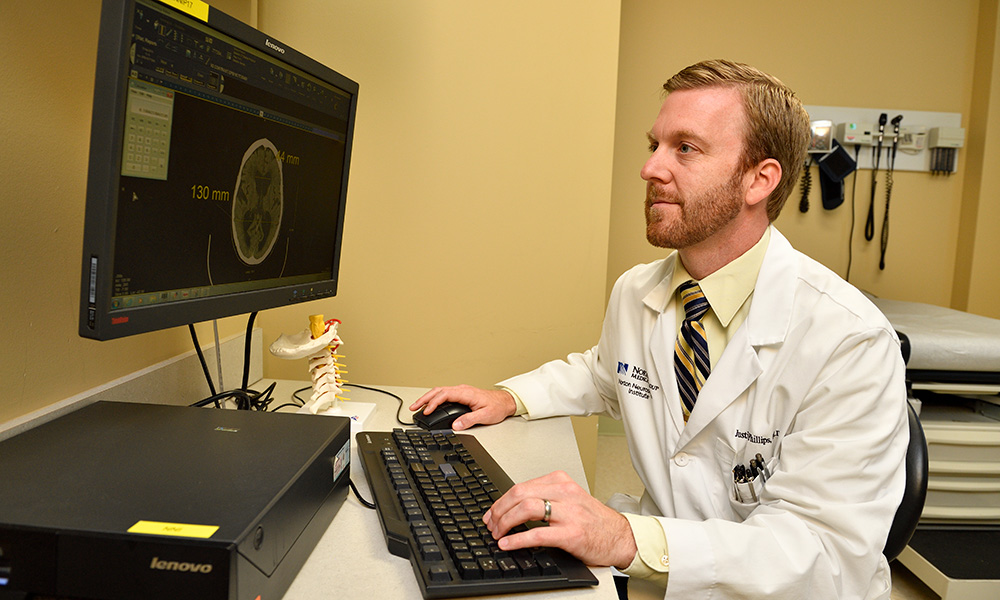Biomarker evidence of phosphorylated alpha-synuclein in skin nerve cells has a high sensitivity and specificity for the diagnosis of alpha-synuclein neurodegenerative diseases

The patient
A 61-year-old male, who is a practicing physician, presented with concerns over his mobility raised by fellow physicians and golf partners. The patient reported that he has always been “stiff” but that perhaps he has a more shuffling gait and notices one arm is not swinging like the other when he walks. His father has Parkinson’s disease. He denied any resting tremor. He reported 15 years of dysosmia. No resting tremor is noted on exam, but he does have subtle features of bradykinesia, including decreased arm swing and some hypomimia. No rigidity is noted on exam unless facilitated by contralateral movements.
The challenge
The patient has subtle parkinsonism with risk factors for idiopathic Parkinson’s disease, yet he does meet clinical criteria for diagnosis. Approximately 50% of older adults will have some incident parkinsonism, while only 1% to 2% have idiopathic Parkinson’s disease. Although having a first-degree relative with Parkinson’s disease increases lifetime risk twofold to threefold, the average risk of idiopathic Parkinson’s is only around 2%. Thus, simply having a first-degree relative with Parkinson’s is probably negligible in regards to overall lifetime risk. Of the most common and penetrant genetic risks, the incidence is still only about 30%, meaning most of these patients will not develop Parkinson’s.
The physician
The solution
Biomarker evidence of phosphorylated alpha-synuclein in skin nerve cells has a high sensitivity and specificity for the diagnosis of alpha-synuclein neurodegenerative diseases. This test can help identify patients with very early or even prodromal Parkinson’s disease to allow diagnosis, prognosis and treatment response.
The result
Patient was identified as having early/prodromal Parkinson’s and given a levodopa challenge. He enrolled in the Parkinson’s disease multidisciplinary clinic for ongoing monitoring of quality measures (and red flags). He was provided additional literature and education in regards to disease expectations and lifestyle modifications to help slow progression. He also was given further information on how to access clinical trials for upcoming disease-modifying therapies.
Treatment and results may not be representative of all similar cases.
Norton Neuroscience Institute Cressman Parkinson’s & Movement Disorders Center
To refer a patient, visit Norton EpicLink and open an order for Adult Neurology.


